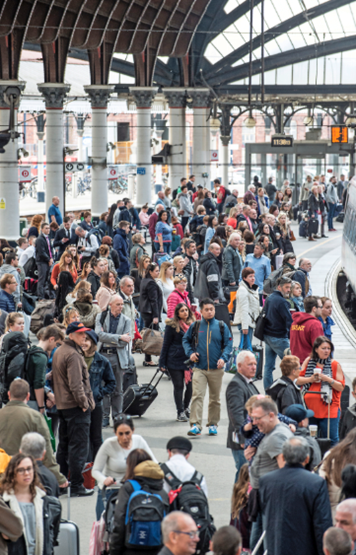 Let’s take an unsentimental journey, back in time to what is euphemistically described as ‘the basic railway’.
Let’s take an unsentimental journey, back in time to what is euphemistically described as ‘the basic railway’.
Pick a rural station, perhaps one not that far from a main line. A simple shelter greets you, the original station building having either been bricked up or demolished. There is no information screen, and no announcements to give you any comfort that your train is running at all, let alone close to time. After dark, your way is marked by small pools of light, barely enough to shine on the station name boards carried on the lampposts. Unwelcoming would be one point of view - distinctly ‘off-putting’ would be another.
Four decades on, some things have changed, although sadly the basic railway is still alive and well in places, with the argument persisting that some form of line is better than none at all.
New technology now means even some small stations have digital display screens, remotely trigged announcements, and machines that can sell you a ticket even if you only have a card in your pocket. CCTV provides reassurance to passengers and security for these ‘distant’ outposts. The railway is much better than it used to be at introducing itself to passengers.
Just as well. In our pockets we all carry supercomputers. We can dial up our own information about how our trains are working, or turn passenger champion and direct our ire towards the railways when things don’t go as we want. Social media has made the act of complaining instant and public.
What’s more, the railways, like so many services we use on a daily basis, are now a private concern. Elsewhere we have become used to dispute resolution, refunds or simply feeling listened to. This, at a time when the proportion of the railways funded by the passenger compared with the taxpayer is increasing.
Hence, the stage has been set for the arrival of a substantial new player in Britain’s railways… an ombudsman.
In early August 2017, the Rail Delivery Group announced it was committed to introducing an independent ombudsman service, to investigate and rule on passenger complaints that were not resolved by the train operators themselves.
The idea has the backing of Rail Minister Paul Maynard, who said, “After my discussions with rail industry leaders I am delighted to see they are taking this vital step, which will help ensure that passengers get a fair deal. I am committed to putting passengers at the heart of everything we do and I want them to have a stronger voice.”
Momentum has clearly been building towards this point for some time. At the end of December 2015, Which? (the name by which the Consumers Association is better known) submitted a supercomplaint to the Office of Rail and Road calling for an investigation into refunds and compensation payments made when trains are delayed. It alleged the process was not clear or easy, and in a survey of 7,000 passengers it found only a third who might have been eligible to compensation for a delay had actually made a claim.
“Millions of passengers are left out of pocket each year, so train companies must do more to put their passengers first and make rail refunds easier,” said Which? Executive Director Richard Lloyd.
It also asked the ORR to do more, to ensure that train operators told passengers how to claim compensation and to be held to account if they didn’t.
The ORR had 90 days to respond and did so with its own research, including a mystery shopper exercise that found a high proportion of staff - either on trains or at stations - couldn’t provide basic or accurate information on making delay compensation claims.
A key recommendation was a new nationwide promotional scheme to raise passenger awareness of their rights, alongside enhanced staff training and clearer information on train operators’ websites. On October 1 2016, the Consumer Rights Act came into effect for the rail industry and the Government announced that the current Delay Repay would be gradually extended across franchises to cover delays of 15 minutes or more.
At the end of 2016, a year after the initial complaint, ORR followed up its research to ensure the recommendations had been accepted by the industry. Most train operating companies had “worked well and made changes”, but “progress on reaching a wide audience to help passengers claim was varied”.
In the Delay Repay scheme, passengers are entitled to a refund of a percentage of their ticket costs, with that percentage increasing with the length of the delay. However, searching online reveals a disparity in the ways train operators advertise it.
Some clearly flag it up, with large button-style links. In other cases it is much less visible - at the bottom of a page, as a plain text link. Follow those links, and the differences grow. From automatic repayments, to online forms, the information about when you can claim and how to do it is presented in a variety of ways - and some perhaps a little more obviously and friendly than others.
The ORR’s annual consumer report Measuring Up was published in July and digs into areas which are key to the passenger experience - ticket retailing, provision of information and how complaints are handled.
Stephanie Tobyn is the Deputy Director for Consumers at ORR, and led the response to the supercomplaint.
“What was the crunch point for us? Looking at the Measuring Up report, there is a lot of information and data in there on some new research we’d been doing on passenger satisfaction, with the outcome of their complaints and the complaint handling process. While there are quite big differences between the companies, overall satisfaction in this area is not good at all. There is something not working.
“In other sectors you can see the value an ombudsman can bring. I think that was the turning point. That research was around 30,000 actual passenger responses on the basis of their complaints with the train operating companies, so it is substantial robust research that has really helped to shape our thinking.”
Measuring Up will make challenging reading for train operators. Each company receives a very public ‘school report’ looking at their performance on provision of information to passengers, their actions to improve accessible travel, and how they handle complaints. The metrics are compared year on year, indicating performance trends.
“We’re trying to focus our attention on the areas where we think we can deliver the greatest value,” continues Tobyn.
“The supercomplaint did direct us towards that in quite a significant way, but complaint handling was a concern because we didn’t see all the TOCs consistently looking at satisfaction at the end of the process - so not reviewing how it went for the passenger. We felt that was an important area. Getting the TOCs to agree to the research, working with them on that, and it has built up over several months.”
ORR supports the move to set up an ombudsman scheme. Tobyn adds: “At the moment the current mechanism is not binding on TOCs, so the ombudsman would bring that element of finality to complaints. It’s a significant difference - it brings consistency to the process. An ombudsman will take a balanced view of what happened, and you need consistent review of the issues to throw out the right answer that can then be applied in other similar cases.”
The ORR has a consumer expert panel which offers guidance when regulatory policy is being formed. However, it is not the only organisation taking the long view for the passenger, nor is Measuring Up the only scorecard the industry receives.
Transport Focus’ National Rail Passenger Survey, which looks at the satisfaction levels of tens of thousands of travellers, is both keenly and anxiously awaited each year. The survey takes place in the spring, with the results published in the summer, and this year there were encouraging signs for the industry as a whole. No train company’s overall satisfaction declined, although individual satisfaction levels ranged between 72% and 97%. A period of seemingly stable performance led Transport Focus to talk of “green shoots” which are “fragile and need nurturing”.
Besides providing evidence of passenger sentiment around the network, the watchdog campaigns can also advocate for the passenger, taking up complaints about train operators in certain cases.
“In recent times, particularly the last 12-18 months, we’ve seen a large increase in the number of passengers turning to us for our help - mainly because of more transparent signposting by rail companies to us, so we can take on cases,” says TF Director David Sidebottom.
“It has also been caused by some poor complaint handling by TOCs. We saw our complaint numbers increase by about 60% for the year 2016-17 compared with previous years.”
The majority of people who use TF’s services say they are satisfied. However, it has no power to impose rulings or enforce settlements. Even so, Sidebottom is confident that the organisation will still have a role to play, even with an ombudsman in place.
“Mediation is the best way of describing what we do. The train companies broadly value a second opinion from us. There are times we have to agree to disagree with a train company - we don’t always get the settlement we like, but I think the train companies know they have had an honest battle with us, if I can describe it like that!
“We’re here to get the best deal we can for the passenger, as their advocate. I think we broadly welcome the creation of an ombudsman - it will give a binding settlement for those passengers whose case meets the criterion of the scheme.
“We see our role as complementary, and we will still have a role to play. We handled somewhere in the region of three and a half thousand escalated passenger appeals for the year 2016-17. That’s about 60% up on the previous year.
“There are a couple of reasons - part of that is ORR putting tighter protocols in place with train operators to more effectively signpost passengers to us and to our sister organisation London TravelWatch, so that passengers can come to us. We’ve also had the added complexity in the last 12 months of some train companies having some operational problems, which has had an impact on the volume of cases we have seen.
“It’s not just dealing with individuals on a conveyor belt of complaints, it’s learning about the issues that affect individual companies or different bits of the rail business. We’ve been successful with that on issues like passengers being treated unfairly when they are on the wrong train with the wrong ticket - slightly draconian rules that still exist around the railway are not interpreted fairly or reasonably.
“We’ve done work over five to six years now to try and get a better deal for passengers who are caught up in a system that is complicated and which often treats passengers like criminals when they have no intent to defraud the railway. We would look to build on that advocacy and policy work, and for the ombudsman to do the same and send clear messages to get these things right first time.”
So, what are the emerging themes from Transport Focus’ work? What might fill the ombudsman’s in-tray straightaway?
“Probably about 60% of our case load we deal with, the actual complaint is about poor complaints handling! If train companies can’t get that right and it causes people to escalate concerns… ultimately an ombudsman service will cost train companies money - not just to run it, but also in terms of individual cases. There will be a fee attached to anything that is signposted and then taken up by the ombudsman, so it puts a real spotlight not just on the themes and issues of a complaint, but also on the bottom line of the train companies.
“It puts rail in the same sector as energy supply and telecoms. Passengers will have a form of mediation, and where the criteria is right you’ll get a binding settlement. It gives the rail passenger, even if they are not happy with what the ombudsman says, the right of redress through the Consumer Rights Act and small claims court. I think it raises the bar in terms of customer service and the rights of passengers.”
Late last year, East Worthing and Shoreham MP Tim Loughton tabled a Private Members’ Bill in an attempt to establish a rail ombudsman and redesign the system of compensation for passengers. Ultimately, the General Election intervened and it was not taken forward.
In its early August announcement, the RDG has opted instead for a voluntary rather than a statutory model. Its aim is to have the service in place by early January, with the first complaints having completed their journey through the system by spring 2018.
“We believe it’s the right thing for the industry to behave in a transparent way. We want to be public about when we get things right and encourage customers to tell us when we get things wrong,” says RDG Managing Director of Customer Experience Jacqueline Starr.
“We have done extensive research and taken the good and bad from other industries. We believe this will be in place much quicker than if it was a statutory scheme. We think better outcomes for the customer will be driven by the ombudsman scheme, and also for the train operators.”
The RDG expects an ombudsman to deliver learning that provides context to individual complaints, to help mitigate against root causes of common problems.
The scheme now on the table has developed with collaboration between the RDG, ORR, Transport Focus, London TravelWatch and the Department for Transport. The aim is a single ‘front door’ to access the service. Passengers will still be expected to log complaints initially with the relevant train operator, with the onus on the operator to resolve the issue where possible. Escalation to the ombudsman would be the right of the passenger.
“All national rail operators will be included in the scheme,” continues Starr. “The decisions the ombudsman makes will be binding on the train operator for all relevant issues. In terms of the process we will go through between now and launch in early 2018, we will scope out what we perceive to be those relevant issues.
“There are some wider specification issues that Transport Focus and London TravelWatch will also take up with industry bodies and advise customers - so, for example, if customers are unhappy about overcrowding, then we wouldn’t necessarily treat that through the ombudsman because maybe one of the solutions is around extra capacity and rolling stock. That’s an example of where a complaint might not go through the ombudsman, but that’s to be confirmed.”
As this is a voluntary scheme, have some of the TOCs needed dragging to the table?
“The honest answer is no. There have been some debates and questions around costs, but that’s understandable because the operators are running businesses in their own right, so of course they would ask that question. As far as they are concerned, this is really an opportunity to close the gap on that experience. They are entirely supportive. There is always finer detail to agree, but in principle they look forward to delivering this.”
But is it fair to say that a voluntary scheme is preferred, compared with the imposition of something statutory?
“We’ve always developed this as a voluntary scheme. I think that sends out a powerful message that the TOCs are developing a voluntary scheme and have chosen to do so in that way. Should the DfT want to change that in years to come, then that’s a conversation to be had. Our conversations with ministers and officials were around something we could get up and running very quickly, and this was the model through which the operators thought we could achieve that.”
Between now and launch another issue to be resolved is payment. There is an expectation that the ombudsman is free to use for rail customers, but its staff and activities will still need to be funded.
Darren Fodey is a Senior Associate at law firm Stephenson Harwood LLP, with extensive experience of working with the rail industry. He’s watched as the industry has moved towards an ombudsman, and argues that the financing of the scheme will be crucial.
“If you have more complaints going to the ombudsman , it would make sense for the operator to bear that cost burden. It should act as an incentive to improve - a feedback loop.
“Let’s be honest - it is the DfT that funds the industry… these costs will find their way back to DfT through franchise bids. The difficulty there is you have open access operators, where do they fit into the equation? That needs to be thought about. The costs will get cycled back to the Department ultimately. However, at the moment you also have the Schedule 8 payments that come from Network Rail to operators.”
Schedule 8 payments are made by Network Rail to train operators, intended to compensate for any short- or long-term revenue impacts that result from delays.
Fodey continues: “Its fair to say, the Schedule 8 payments are not just about paying all that money through to the customer. A lot of it is about the impact, in terms of revenue in the longer term, which delays can have on passenger perception and passenger usage of the railway. There is money that goes to TOCs - perhaps some of that can be used to fund the activities of the ombudsman.
“Some of that compensation is deservedly for the train operators. They have to re-diagram, they might have to pay overtime to crews, and so on. There is a revenue impact, too, because of the disruption that’s happening. Ultimately the money is going to come from somewhere, and I think it will be factored into franchise bids.”
Fodey is very much in favour of the scheme as part of a reputational transformation for the industry.
“I think that’s the big thing about the prospect of an ombudsman. They can impose decisions on the companies which are subject to their jurisdiction. They can force the train operating companies to actually do things like paying compensation or apologising, because sometimes that’s all the customer wants.
“I think there is a perception that the railway industry is one that is out to make money for itself and doesn’t really care about passengers. I think that’s wrong, but it is certainly the perception. You know what? This is a way which really can be seen to be holding the train companies to account - to have an independent champion out there that will stand up for the rights of the passenger, which will hold the industry more to account (and more importantly) in the eyes of the passenger.
“Also, we have to understand passengers are affected when there is disruption. Sometimes what they are entitled to in terms of compensation doesn’t cover their costs, and passengers are right to be annoyed about this. Getting, for example, a letter from a TOC which hasn’t been thought about is only going to increase the ire, so having someone there to stand up to the train operator is a very good thing.”
As the RDG continues its work to procure an ombudsman provider, various financial models will be considered, according to Jacqueline Starr.
“We haven’t discussed Schedule 8 in relation to this. There are different finance models, and that will come out in the procurement process. There is a model where we pay a lot up front; there’s an ongoing contribution.
“We’ve been open-minded going into the procurement process to make sure we choose the best supplier for customers. We will choose a funding model that will be palatable for the operators. We don’t want to drive more costs into the industry, and that’s one of the principles we will work to.”
The voluntary nature of the scheme is also welcomed by David Sidebottom, at Transport Focus.
“It is down to the rail industry to do this for the right reason. It needs to dig deep into its pockets and fund a structure that is right for passengers, fits in with existing mediation schemes like Transport Focus and London TravelWatch, and learns from what it gets. But I think very much it should be a voluntary scheme.”
ORR’s Tobyn concludes: “If this ends up more complicated, unclear or fragmented, that would be failure. We need it to be a simple process straight from the train operator hopefully doing everything they can to resolve this complaint, and if not a clear process through to the ombudsman, and not let people get fatigued or frustrated by the process. It should give confidence to passengers that there is some backstop there, someone who is going to take a fair and balanced view looking at all the issues in the case. That would be success for us.”
As the railways continue to develop, as structures and regulations are overhauled to political whim, one thing remains constant: from the earliest days, through the rise and fall and to today’s resurgence - the passenger. Be they waiting in a simple shelter, or surfing complimentary WiFi in a First Class lounge, all have chosen to take a train and all have an expectation of good service in return for their fare.
Almost 200 years of mobility has set the stage; the ombudsman is coming. In a country where railway knocking occasionally feels like a national sport, their role might be crucial in shaping not just passengers’ perceptions, but also our cultural dialogue.

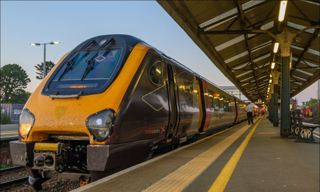
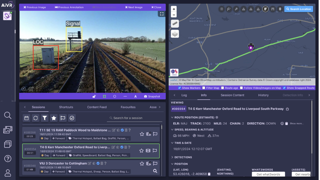
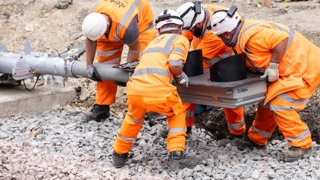
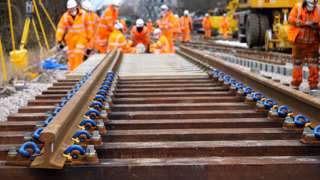










Login to comment
Comments
No comments have been made yet.